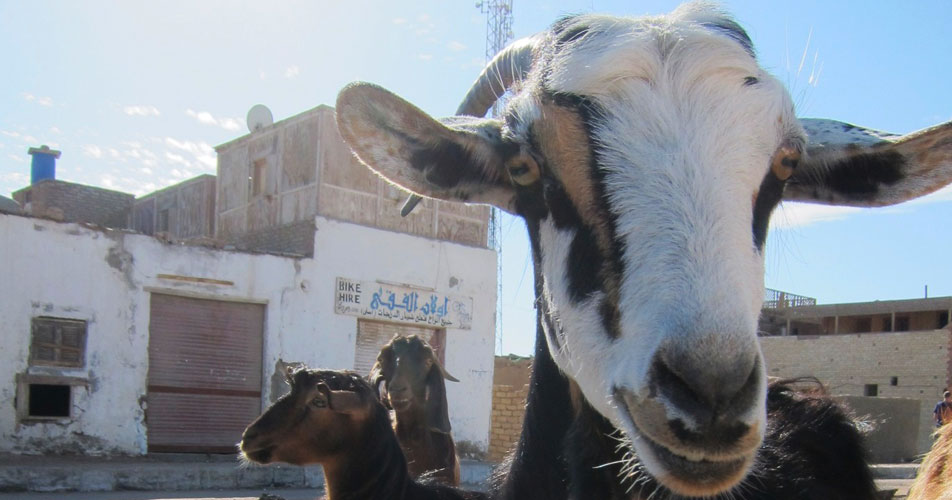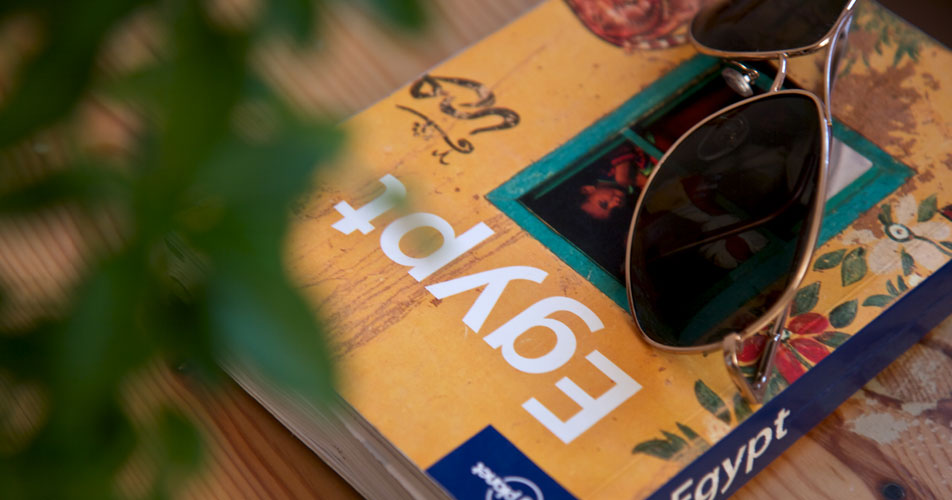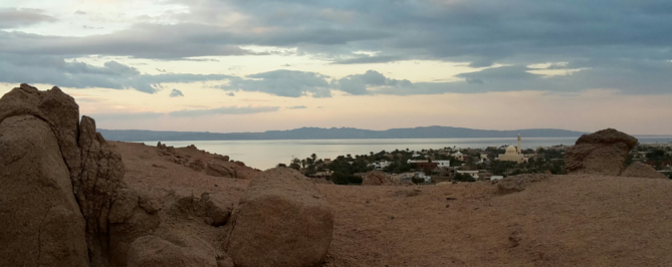
The Goats of Assalah
What’s the story with the goats of Assalah? The once-ubiquitous four-legged street-cleaners have disappeared—was it a government action, or simply because our roads have been re-tarmacked? The goats are reappearing slowly in little herds here and there and we thought we’d dedicate a blog post to these creatures.
If you’ve stayed at Red C Villas, you’ll probably have noticed the goats wandering the streets of Dahab. They might seem like strays, but they actually belong to the local Bedouin families who live in el Assalah, just to the south of Red C Villas. Goats have historically been important in Bedouin culture, as they were well suited for the nomadic life. They are relatively easy to care for and they provide many necessities; milk and meat were vital protein sources and goat wool was used for making tents. A large herd of goats showed the wealth of the family that owned them. Even though the Bedouin living in Dahab are no longer nomadic, the goats persist. They are allowed to roam around the streets for free feed and generally clean up any edible rubbish. They are even partial to the odd bit of cardboard!
Many Dahab expats have a separate bin in their kitchens for veggie scraps, which are often used to treat the street goats. After a while, the goats know you and saunter over when you scatter your scraps. My daughter, Juno, loves feeding the goats and sometimes throws the scraps a little too far into the road. This results in mildly irritated pickup drivers who have to deal with the goat-induced mini traffic jam.
A few goat-related questions from visitors past:
- There are lots of goats around during the day, but where do they go at night? Their owners whistle for them as darkness falls and they run home knowing they’ll get a little snack.
- Do a few of them need a pedicure? Because they don’t roam far, they don’t wear their hooves down. A friend once told me it also makes them easier to catch.
- Why do some of the females have a harness that holds a bag in place over their udders? This keeps their udders clean, and prevents cystitis and other udder-related issues.
After there has been a good rain, which is only once or twice a year, the goats are taken out into the wadis so they can feed on the desert herbs that shoot up after a soaking. Eating good grub also makes their meat taste better. That said, the street goats are mainly used for breeding and are generally not killed for their meat. Would you like to eat a goat that’s been eating scraps from the roadside? The goats they do eat and milk are kept in their gardens. They’re fed yummy kitchen scraps and goat feed so they’ll taste nice when the feasts of Eid al-Fitr and Eid al-Adha come around. A well-fed adult goat can provide over 15kg of meat and costs about 1,700 – 2,000 EGP (Egyptian Pounds).
The best goat meat comes from St Catherine; the higher rainfall there means more lush vegetation for the goats to eat. Red C Villas can easy arrange for you to check out the beautiful village of St Catherine.
For a while now, the local government in Dahab has been threatening to stop the practice of the local Bedouin allowing their goats to roam. Will the goats of Dahab be forced from the streets? If they are, will the streets be cleaner? Will there be fewer traffic jams? Do the goats add to the local colour and charm of the town, or would visitors prefer a goat-free Dahab? Whether you like them or not, they certainly make for quite a spectacle and have been the subject of many a photo by locals and visitors alike.
Rio, the handy-man extraordinaire of Red C Villas, might be able to answer any more questions you might have about Dahab’s goat population.
Check out this Red C Villas facebook post shared on May 23rd about how goat cheese is made.
Until the next blog,
Dom
Like it? Share it with your friends!





